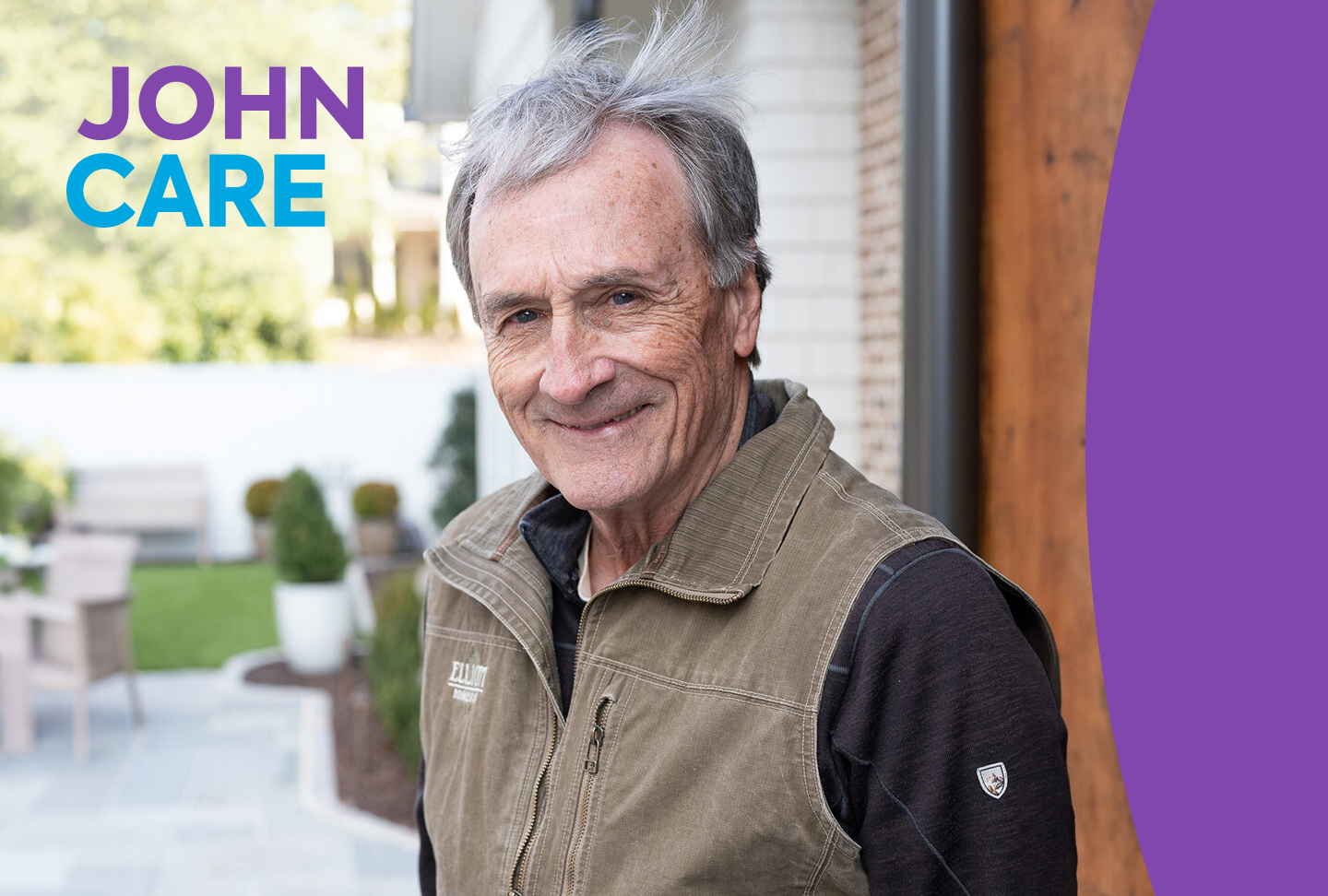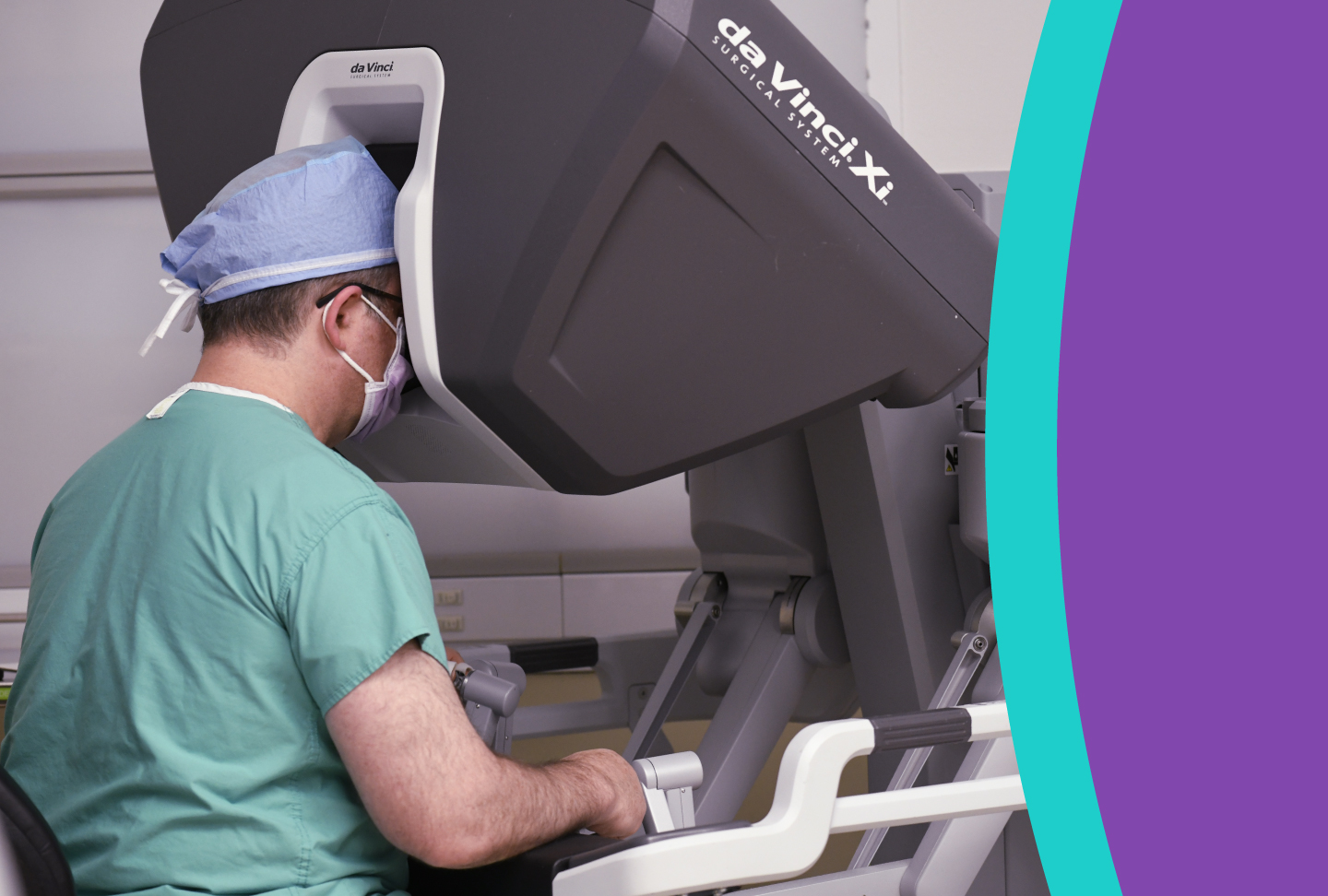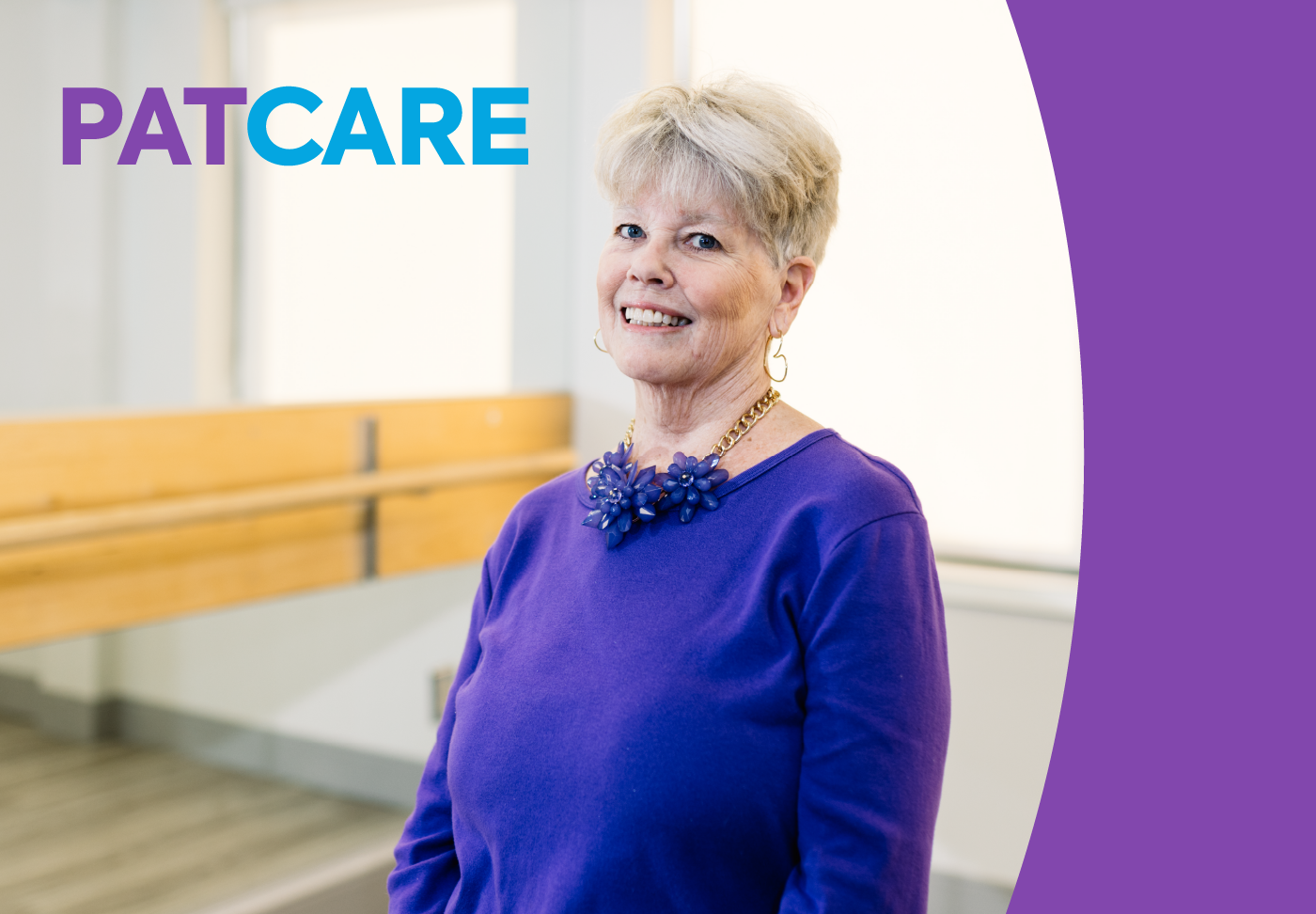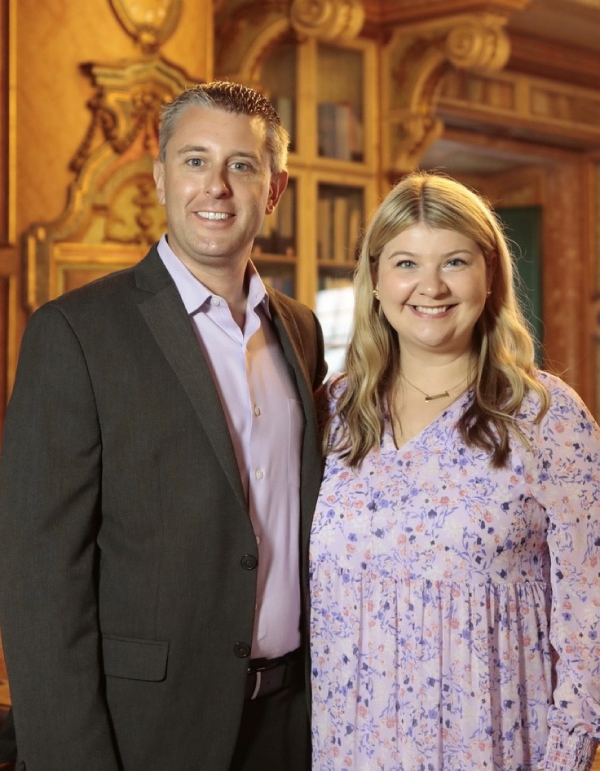Pursuing Parkinson’s surgery
As John’s symptoms became less responsive to medicine, his neurologist referred him to
Dr. Jack Shen, a movement disorders specialist. Based out of Wellstar North Fulton Medical Center in Roswell, Dr. Shen is the medical director of the Metro Atlanta arm of Wellstar’s Parkinson's and Tremors Program.
“In Mr. Elliott's case, we had controlled his symptoms pretty well for several years with medication, but we came to a point where medications weren't as effective,” Dr. Shen said. “We came to this decision together to enter him into our surgical pathway for DBS.”
A minimally invasive surgical procedure for people with movement disorders, DBS helps stop or lessen unintended movements by sending electrical pulses to specific areas of the brain.
Dr. Hilarie Tomasiewicz, the medical director of
functional neurosurgery at Wellstar Kennestone Regional Medical Center, remembered, “John was extremely motivated to improve his motor symptom control and was very interested in undergoing DBS.”
John had initially considered having DBS at another hospital, but ultimately, he trusted his team at Wellstar.
“I was really comfortable with Dr. Shen and Dr. Tomasiewicz,” John recalled. “They're just very attentive and caring. I couldn't have had a better experience.”
John’s steady guide
“A special aspect of the Wellstar program is we have the same medical and surgical team following the patients before, during and after surgery,” Dr. Shen said.
One such team member is Nurse Navigator Carrey Lordemann.
“Nurse navigators provide education and emotional support to patients,” she explained. “We educate them about their diagnosis and their treatment plan and act as the liaison between the patient and their treatment providers.”
Carrey helped streamline the steps required to undergo DBS for John, including:
- Initial consultation with the movement disorders specialist
- Neuropsychological evaluation
- Pre-operative MRI brain scan
- Video documentation of symptoms
- Consultation and pre-surgery appointment with functional neurosurgeon
“I’m here for patients throughout the entire process,” Carrey said.
John added, “Carrey’s a lifesaver. You can get her through Wellstar MyChart or you can call her—she's going to answer the phone.”
How deep brain stimulation works
DBS involves a functional neurosurgeon placing stimulating electrodes in deep regions of the brain that control motor function. These electrodes are connected to pulse generators—or batteries—that are typically implanted in the chest. The battery sends electrical pulses to the electrodes, regulating abnormal brain activity and improving motor control.
“DBS is not a cure, but because it improves motor symptoms, it can allow patients to rewind the clock a bit, if you will,” said Dr. Tomasiewicz. “They can return to doing the activities that they enjoy— things like writing, gardening, and drinking a cup of coffee without spilling.”
Patients stay awake during the procedure so doctors can test in real time for side effects.
“We've built a specialized team in the operating room (OR), all of whom are very familiar with the DBS procedure,” said Dr. Tomasiewicz. “Our patients report that there is a tremendous sense of comfort associated with knowing every OR team member's name as they undergo their awake procedure.”
While Dr. Tomasiewicz performs the surgery, Dr. Shen is also in the operating room.
“I'm there face-to-face with patients so that we can listen to their brain wave activity, deliver test stimulation and monitor their symptoms in real time,” Dr. Shen said. “I'm just so happy to see their response when we can improve their tremor in the operating room.”
John’s transformation
John had his first DBS procedure in 2024 to target the more severe symptoms on the left side of his body.
“What they did for me is life-changing,” John said, who still works part-time in the homebuilding business with his son. “I didn't want to go out anywhere. I didn't want to see anybody. Now, I walk into a room and people go, ‘You look great! Tell me about this surgery.’”
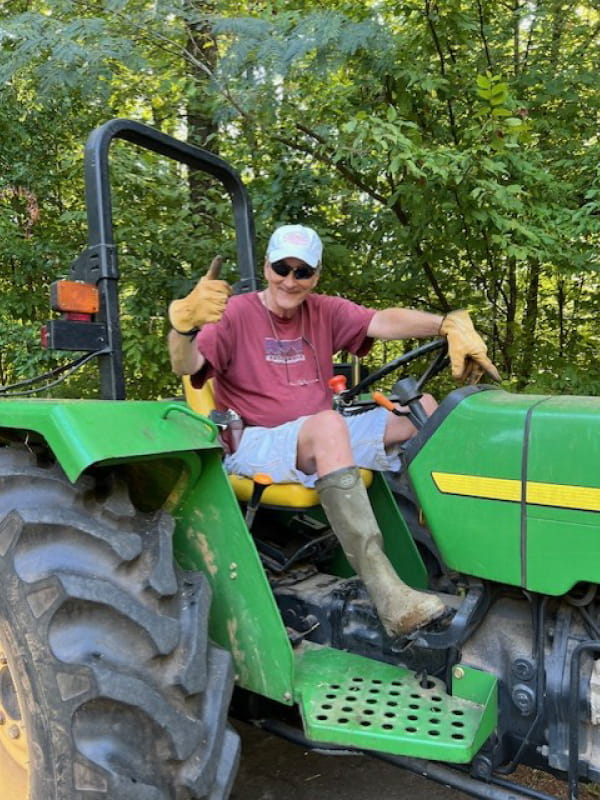
Three months after his deep brain stimulation (DBS) procedure at Wellstar, John grins and gives a thumbs up from the seat of his tractor as he gets ready to bushhog the family farm.
Because of the success he experienced on his left side, John opted to have a second DBS procedure in 2025, a decade after his diagnosis.
“Due to progression on the other side of his body, mainly increased tremor, we decided to treat that side of the body as well,” Dr. Shen said.
John went from taking 12 dopamine tablets to just one and half per day and his tremors are almost entirely gone.
“Being able to offer a treatment that brings patients their old life back and makes things so much easier for them—there's no greater feeling than that!” Carrey said.
Post-DBS care
After surgery, there’s a process of fine-tuning the electrical pulses to maximize symptom control. Fine-tuning is done in-office, but John also has a device that he can adjust within set parameters himself at home. Dr. Shen, Carrey and John work together to find the right balance.
In addition to DBS and minimal medication, neurological rehabilitation and physical activity play an important role in managing his symptoms. Together, these therapies and lifestyle choices make the release of dopamine in John’s brain as effective as possible.
DBS gave John a strong foundation to do the things he loves again. His experience is a powerful testament to the value of a comprehensive, collaborative approach to care for people with movement disorders.
“We as a team are delighted with John's outcome,” Dr. Tomasiewicz said with a smile. “His story is a beautiful example of why DBS is a life-changing intervention for Parkinson's disease.”
Movement disorder care at Wellstar
The Wellstar Parkinson’s and Tremors Program is based at
Wellstar Kennestone Regional Medical Center and
Wellstar North Fulton Medical Center in Metro Atlanta as well as
Wellstar MCG Health Medical Center in Augusta.
When is it time to see a doctor?
It can be difficult to recognize the signs of movement disorders like Parkinson’s disease at first.
“A lot of patients notice walking differently, maybe taking longer to do things, noticing lack of coordination in a hand or arm and tremor as an obvious sign,” Dr. Shen said.
Symptoms of movement disorders
- Tremor (rhythmic shaking of body parts)
- Involuntary muscle movements or jerking
- Poor balance/coordination
- Difficulty walking/shuffling gait
- Speech difficulties
- Limb or trunk stiffness
- Bladder symptoms/constipation
- Feelings of irritability, sadness or apathy
- Reduced sense of smell
Find a movement disorders specialist at Wellstar.

